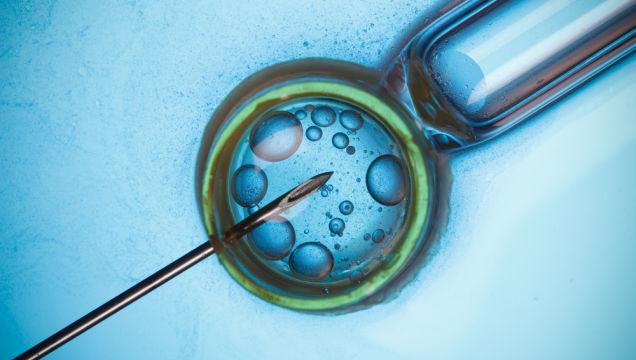Egg freezing is about as hot as a women’s reproductive topic can get. But it’s also extremely rare: Only about 2000 humans currently populating the planet can thank this method for their existence. It’s a number that’s surprisingly low for a procedure that’s being so heavily hyped by HR departments and fertility specialists alike.
Put it this way: More women have likely attended trendy egg freezing parties selling the concept than bore babies conceived using this method.
A comprehensive article in this month’s Nautilus dives into the controversial practice of freezing eggs (or, more formally, oocyte preservation) as a way to delay motherhood for years or even decades. But the concern is that too many women are being sold an idea of handing over their eggs and thousands of dollars for a procedure that’s just too new:
Just 2000 babies have been born from cryogenically frozen eggs in the world — and only 20, for instance, in all of Great Britain. Early data suggests that egg freezing is a woman’s best bet for having her own genetic children in her forties, but framing egg freezing as reliable fertility insurance encourages women to rely too heavily on a technology that is still being refined in many of the clinics where it is being sold.
This isn’t the same number of babies born using in-vitro fertilisation (IVF) which does require storing eggs temporarily (less than a week) but not putting them into so-called cold storage for extended periods of time.
Just because the science is new doesn’t mean it’s something that clinics shouldn’t offer. USC’s Fertility Department, for example, has been freezing eggs since 2004 — that’s over a decade of experience of pulling eggs out of the deep freeze. The bigger problem is the way that companies like Apple, Facebook and NASA are marketing the procedure to employees by offering large financial credits. This makes it seem like egg freezing is a sure thing for starting a family down the road, when in fact, there are all sorts of factors — age, maternal health — which determine the viability of the embryo.
The good news for women is that no matter what the current rates are, the science is improving. A new process called vitrification freezes eggs faster, preventing potentially destructive ice crystals from forming in the egg. So while the numbers of women using this procedure are currently quite low, the stats may change quickly with this new method, especially as more women freeze their eggs, and at an earlier age.
Besides, numbers like this don’t always tell the whole story when it comes to advances in fertility. In 1977 only one baby on the planet had been born using IVF. In 2012, according to the Society for Assisted Reproductive Technology, 61,000 babies in the U.S. were conceived with IVF just in that year alone. [Nautilus via Real Future]
Image: Sukharevskyy Dmytro (nevodka) via Shutterstock
